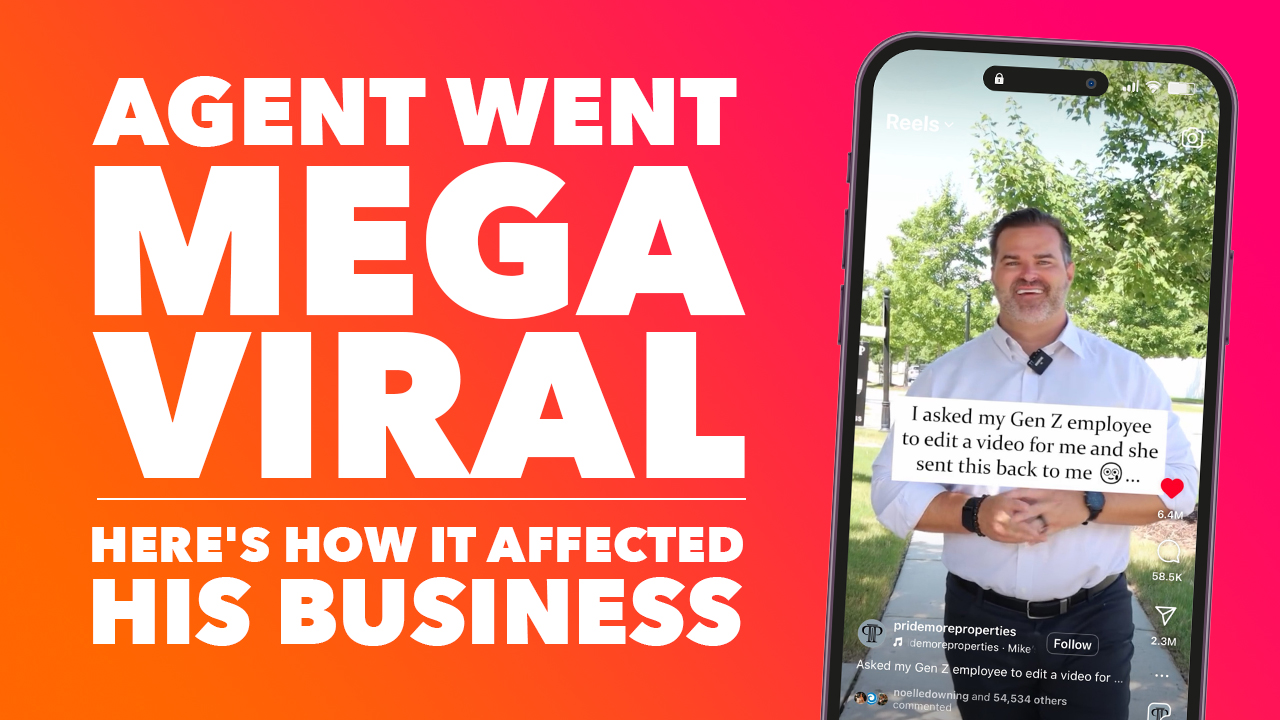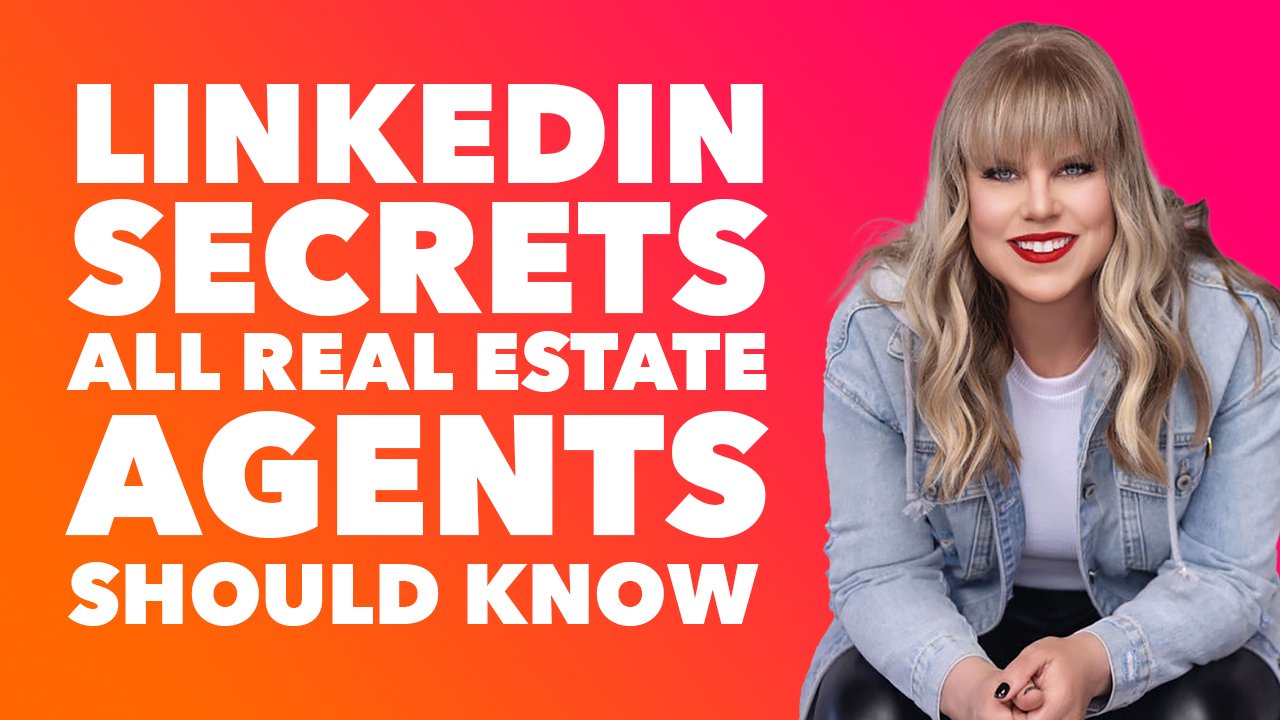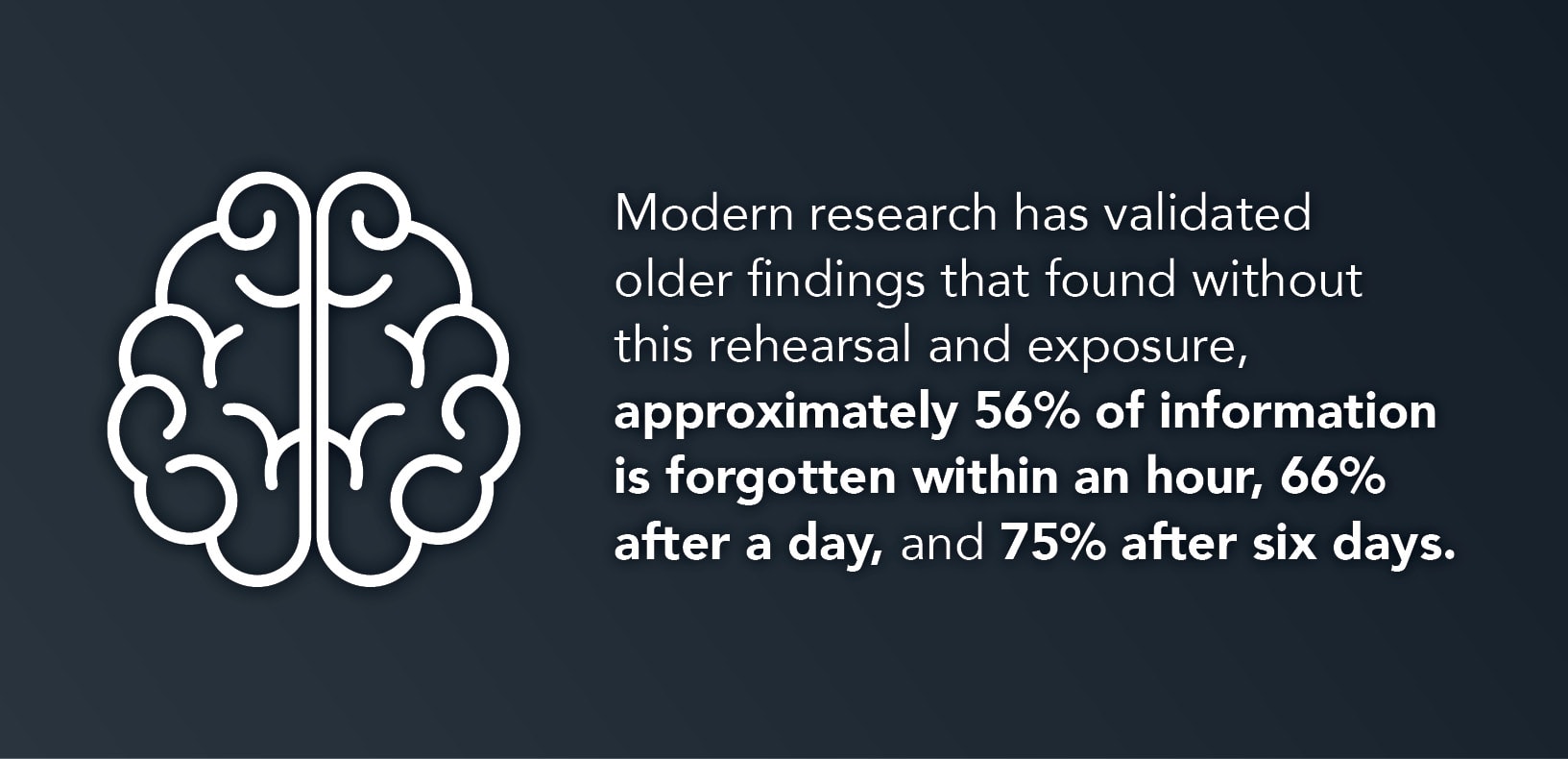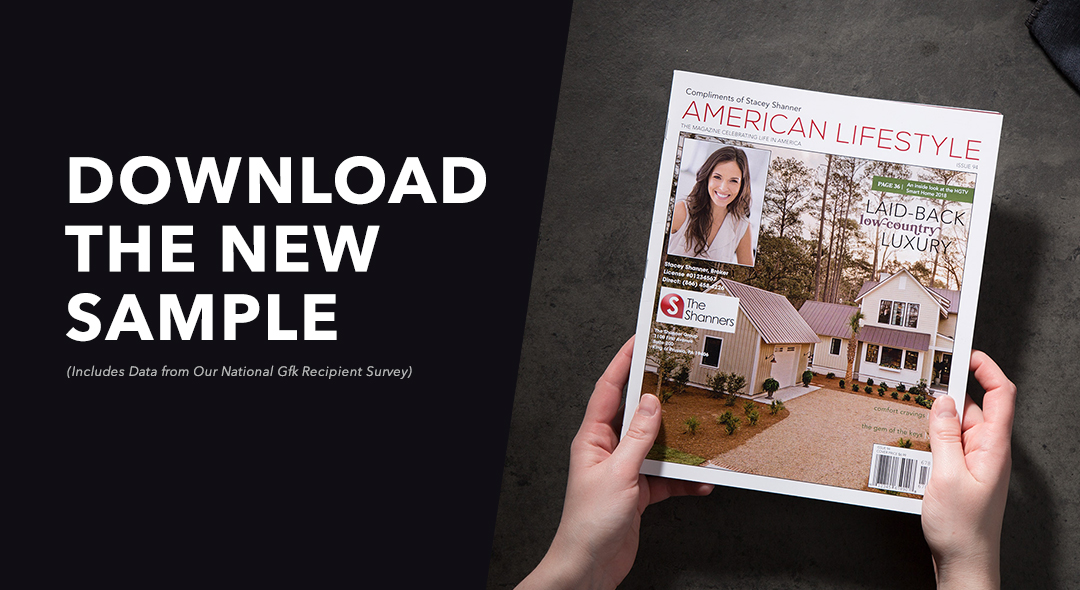Use the psychology of memory and sound relationship-marketing tactics to build long-lasting, memorable customer relationships and stay top of mind
How are people going to remember you when you’re gone?
Relax. I don’t mean “gone” as in “gone to a better place.”
I mean “gone” as in you’ve left a conversation with someone you haven’t met before. How is that person going to remember you?
For salespeople, it’s a critical question, and there’s only one good answer: you want to be remembered for possessing the qualities that are most important to your customer.
How you go about identifying those qualities requires, at a minimum, that you understand your clients’ pain points and can quickly assess their personality types.
Still, we do know that there are some universal qualities that leave lasting and positive impressions.
On that score, I’ll share a bit of what researchers have found out about the psychology of memory and the qualities we all find appealing. From there, we’ll explore how you can demonstrate these qualities to become a memorable service professional.
What is memory?
Memory is still something scientists don’t fully understand. Let’s face it: with approximately 86 billion neurons, the brain is super complicated, so I’m willing to cut them some slack. Fortunately, for our purposes, we don’t need all the details. A high-level overview should suffice.
One enduring model (there are several) suggests that there are three types of memory:
Sensory memory: It may last only a couple of milliseconds, but that brief time is enough to serve as the foundation of the other two types of memory.
Short-term memory: Short-term memory will hold information for about 30 seconds.

Every time we create a reminder for ourselves, we’re compensating for the shortness of our short-term memory.
Long-term memory: In a process called “memory consolidation,” short-term memories are strengthened with frequent rehearsal and repetition until they become deeply embedded, long-term memories that can be recalled at will.
Your goal as a memorable service professional is to make an impression so strong that it endures long enough to make it into your clients’ long-term memory. To remember you, your clients’ brains must make physical changes, building ever-stronger connections among countless neurons. And they’re not going to spend that energy unless you make it worth their time.
That’s no small feat—for you or their brains.
As complicated as understanding how memories are formed can be, perhaps more relevant to our goal of understanding how to become a memorable service professional is, “Why do we forget?”
Why do we forget?
According to some of the most recent research, when we forget something, it’s not because we’ve physically lost the memory; the cells where the memory is stored (called engram cells) are still there. Rather, it’s because we’ve failed to access and activate these cells. And just as there are three main types of memory (not counting all the subtypes), there are four generally accepted theories for why we forget or are unable to access information.
Decay theory: Imagine you’ve traveled through a field numerous times, taking the same route each time. The grass has been worn away, you can easily see the pathway you’ve created, and you have no problem finding that same route the next time you want to cross the field.
Now imagine you’ve only walked across that same field a limited number of times. The grass hasn’t worn away, making it more difficult—maybe impossible—to see any pathway.
Scientists who ascribe to decay theory refer to that pathway as a “memory trace.” If a memory trace is not reinforced, it will fade and eventually you’ll no longer be able to access the memory.
Interference theory: Interference happens when some memories get in the way of other memories, making it difficult or impossible to remember them. This is especially the case when new information is very similar to old information.
Failure to store: “Encoding” is the process of turning information into long-term memories. When we don’t encode information, we don’t forget a memory so much as fail to make it in the first place.

There are thousands upon thousands of details we encounter every day that we don’t remember. For example, you may remember bumping into a stranger on the sidewalk, but not the color of their shirt.
Motivated forgetting: To cope with painful memories, there are some people who willfully try to forget. They consciously suppress intense details to reduce the extreme emotions associated with remembering.
Using what we now know about the psychology of memory, let’s explore what makes some people more memorable than others. Along the way, I’ll suggest how to apply what we discover to the specific intention of becoming a memorable service professional.
What makes a person memorable?
With a little internet searching, you can find lists of traits and behaviors that make some of us easier to recall than others. Why some traits and behaviors make people memorable, and not others, isn’t necessarily concrete.
Still, there does seem to be a thread common among memorable people—one that poet and civil rights activist Maya Angelou figured out a long time ago: “I’ve learned that people will forget what you said. People will forget what you did. But people will never forget how you made them feel.”
Specifically, and based on the research that follows, memorable people tend to evoke strong, positive emotions in us, such as feeling good, safe, valued, and respected.
Psychologist and often-referenced researcher, George S. Everly, Jr., Ph.D., offers his list of the seven factors that make a person memorable:
- optimism
- reliability, trustworthiness, and taking responsibility for one’s actions
- tenacity
- self-confidence
- respectfulness
- interpersonal connectedness
- resilience
Below I take a closer look at each of these attributes and suggest how service professionals might demonstrate each of them to become more memorable to prospects and clients.
Optimism
It may be disheartening to learn that the human brain evolved to focus on the negative, but it’s helped us to survive. If we can identify the threats in our environment, we can better avoid them.
People who are optimistic, however, aren’t focused on the potentially dangerous; they see the good in most things. For that reason, they break the mold; they stand out; they’re a bit unusual. We remember what’s different.
For the service professional who wants to be remembered, the easiest first step toward demonstrating optimism is to greet people with a warm smile.
There’s a part of our brain called the cingulate cortex. It’s responsible for processing emotions and regulating behavior, including behaviors we don’t consciously control. Study after study has demonstrated that smiling at someone triggers an automatic response in this part of the brain that makes them smile too.
Smiling is contagious, and it triggers feel-good chemicals in our brains.
Additionally, sincere or “true” smiles, as opposed to forced, faked, or “social” smiles, encourage others to view you as more trustworthy, intelligent, and attractive. As you know, being able to build trust is critically important to a successful career in sales. And being perceived as attractive doesn’t hurt.
Another way a service professional can be remembered for their optimism is to reassure a client that you can solve their problem.
Tony Robbins (who took his cue from Aristotle) suggests that people are motivated to act either to avoid pain or to seek pleasure. In other words, people will seek out your service or product because they need to rid themselves of a problem, or they want more pleasure in their lives.
Give your clients what they want!
Your product knowledge should allow you to confidently connect the benefits of what you are selling to eliminating a specific pain or augmenting your clients’ happiness.
Reliability, trustworthiness, and taking responsibility for one’s actions
When someone is trustworthy and reliable, they’re dependable. We know what to expect from them, and predictability puts the human brain at ease.
Additionally, when it seems like so many people spend their energy trying to avoid blame, we can admire someone who takes a risk in admitting their mistakes and foibles. Admirable people are memorable.
Memorable service professionals will do what they say they will do.
You’ve probably experienced this yourself: a service professional says they’ll call you back in a couple of hours, but they don’t. Now you need to call them, which is highly annoying. If ever they say they’ll call you again, you won’t believe it. They have no credibility, and there’s no trust.
Not being remembered isn’t as bad as being remembered for the wrong reasons.
Even if you don’t have an answer to a client’s question, it’s better to call with an update than not call at all.
Tenacity
Tenacity is a quality of very determined people. They persist in the face of hardship, show courage in the face of danger, resist opposition, and demonstrate purpose. We admire people who are tenacious because of their confidence.
If you’re a service professional who resists making more than one or two follow-up calls to your leads, pay attention.
Your third, fourth, or fifth follow-up may be annoying, but after the sixth, seventh, or nineteenth call, they’re going to admire your tenacity. An agent with a “whatever it takes” attitude—combined with the right script—is hard to forget (or resist)!
Sidebar: On average, you need to make 6 to 8 calls per prospect to have a successful cold call conversion rate. To connect and convert into a real opportunity takes, on average, another 18 attempts.
Whether it’s because they are passionate about what they are selling, relentless in their pursuit of a solution to a problem, or determined to create a loyal client, service professionals with tenacity are easy to remember.
Self-confidence
Entrepreneurial operating system (EOS) implementor and executive coach, TC North, Ph.D., writes that people with self-confidence remain calm in stress-filled situations, have a positive attitude, and feel valued. They are less likely to be fearful or anxious, or to succumb to what others may think. When compared to less confident people, those with self-confidence are happier, more motivated, and even sexier!
Given all this, there is little wonder why, according to Dr. Everly, self-confidence is “magnetic”—it draws us closer to those who radiate it.
We can surmise that self-confident people may be more memorable because, according to Dr. North, how they think, act (including how they carry their bodies), and use their voices gives them an aura of authority and leadership. This aura comes with an extra bonus for service professionals:
“Self-confident people often influence others more readily. This helps when selling an idea or product or negotiating at work or home.”
When in the presence of a self-confident service professional, a client should feel good about their buying decision. They should feel safe and protected from any negative consequences of doing business with you. When combined with respectfulness, a self-confident service professional will also make clients feel valued.
Sidebar: To build confidence, nothing beats knowledge and preparation. Become the authority on your product or service. A close second is keeping the promises you make to yourself. If you promise yourself to get to the gym at 5 a.m. and you do, you’ve accomplished something, and the good feeling carries over to other parts of your life.
Respectfulness
Respect is critical to forming and maintaining lasting relationships, whether they are relationships between life partners or between a service provider and client.
When we show someone respect, we often earn their respect in return—and we rarely forget people we respect.
Service professionals can show respect by listening to their clients.
You can immediately tell when, for example, a salesperson is not listening to you. After explaining your needs, they either show you something above your budget, point you toward the “limited time offer” regardless of what it might be, launch into a speech about the benefits of their top model, or provide another equally inappropriate option.
Don’t treat clients the way you want to be treated. Treat them the way they want to be treated.
You may prefer to communicate using text messages, but perhaps your client prefers to communicate using email. You may prefer early morning meetings, but your clients prefers meeting after normal business hours. Find out your clients’ preferences and strive to respect them.
Use clients’ names, speak to them and not at them, and say thank you.
In early 2019, researchers at the University of Aberdeen in Scotland published a study that aimed to find out the lasting effect of being forgotten, “whether in terms of one’s name, personal details like one’s birthday, or shared experiences.”
The researchers discovered that while we are generally forgiving of these faux pas, they have a lasting and damaging effect: “Those who were forgotten still felt less close to and perceived themselves as less important to those who had forgotten them.”
Ouch.
In addition to remembering your clients’ names and other important details, you want to ensure that you are talking to your clients in a way that they’ll understand. Respect their intelligence, avoid using jargon, and explain technical terms.
If you’re meeting with more than one person, show respect by including everyone in the conversation, even if only one is your client.
- Financial advisors: don’t speak solely to the husband while ignoring his wife.
- Doctors: don’t ignore the elderly parent by speaking about them to their caretaker rather than to them as your patient.
- Real estate agents: don’t engage the parents without also including the children. (It’ll be their house too.)
Even if you don’t converse with everyone, the easiest way to be inclusive is to make eye contact with each person and include them in your gestures.
Finally, make sure you say thank you. So few of us do that anymore that when someone does say thank you, it tends to stick with us.
Sidebar: To be especially memorable, send a handwritten thank you note to your clients. Express your gratitude for their business and what it means to you to have them as a client. In a survey conducted by Ask Your Target Market, 72% of respondents reported that when compared to an electronic note, paper thank you notes are more meaningful.
Interpersonal connectedness
Interpersonal connectedness is at the heart of relationships; without it, there is no relationship.
What kind of relationship should salespeople have with their clients? While it may evolve over time, it should start as one of service. Dr. Everly is spot-on when he wrote:
“If we are there for others in times of need, asking nothing for ourselves, only to help, then we become unforgettable and invaluable.”
Only a few months ago, I witnessed an instance of interpersonal connectedness between my elderly mother and my real estate agent.
My 83-year-old mom was having a difficult time coping with the thought of selling her home of 50 years. When the photographer came to take pictures, she became visibly upset.
My agent saw my mother’s need for comfort and immediately acted.
She moved to the couch where mom was sitting and took her hand. They sat like that, looking at one another and talking like friends, until my mother felt more calm and the photographer could do his job.
I will never forget it or her, and it is something for which I will always be grateful. Furthermore, the sense of reciprocity I feel toward my agent for her kindness will not diminish over time. She’s assured all referrals to an agent I ever make.
Being able to forge relationships and establish interpersonal connectedness with your clients is central to relationship marketing, but it doesn’t have to be as dramatic as what I’ve described.
Remembering an anniversary, sending a graduation card, hosting a client event, calling to simply check in—all of these are ways to nurture interpersonal connectedness, build relationships, and be remembered.
Resilience
According to the American Psychological Association, “Resilience is the process and outcome of successfully adapting to difficult or challenging life experiences, especially through mental, emotional, and behavioral flexibility and adjustment to external and internal demands.”
Amit Sood, MD, the executive director of the Global Center for Resiliency and Well-Being, describes resilience in layperson’s terms: “It’s your ability to withstand adversity and bounce back and grow despite life’s downturns.”
As a successful service professional, you’ve got an abundance of resilience. You have to—rejection is a part of the job.
But you can be remembered for your resilience by how you accept rejection.
Above all, make sure you part ways on a positive note. Smile sincerely and offer a warm handshake. Let them know that if they need anything in the future, you’ll be happy to help. Include a parting comment that references something earlier in your conversation, such as, “I hope you enjoy your trip!”
All these gestures will ensure that even though they rejected the sale, they’ll feel good about their decision and you. Now, when you continue to nurture the relationship with a drip campaign or other tactic, they won’t remember feeling badly when they hear from you. However, they will remember your gracious acceptance of their decision.
Strong relationships create strong memories
Remember what I said about using rehearsal and repeated exposure to deepen memory traces and remember new information? Well, modern research has validated older findings. Scientists found without this rehearsal and exposure, approximately 56% of information is forgotten within an hour, 66% after a day, and 75% after six days.
The conclusion is obvious: The best way to get your clients to remember you in strong and positive ways is to consistently expose them to the traits and behaviors discussed in this blog. How do you do that?
You develop relationships with them.
Forget selling B2B and B2C. Instead, think H2H: human to human. People do business with people. Let your clients get to know you as a person; be authentic. Give them repeated opportunities to see you as optimistic, reliable, trustworthy, and other positive ways.
At ReminderMedia, we specialize in helping our clients to be memorable and stay top of mind by keeping them in consistent contact with their clients.
We provide personally branded magazines featuring your photo, business, and contact information that are automated for delivery to your exclusive list of recipients every 6 weeks. (Get a free sample here.)
These magazines give recipients an opportunity to reinforce their memory trace of you—and all the qualities you demonstrate.
They’ll see your face and your business on a consistent basis, combating interference forgetting and eliminating any possible confusion between you and the dozens of other professionals with whom they cross paths.
We also offer prewritten content for your social media that you can schedule for regular posting. (Click to get a 30-day free trial.) Select from optimistic quotations, informative blogs, and memes that tickle our collective funny bone. Use our schedulers to set a regular date and time, and you’ll reinforce perceptions of your reliability.
And we’ve got postcards (and a FREE landing page) for steady geo farming, plus a digital marketing platform that includes a biweekly newsletter featuring local and virtual events. Use these products to keep your brand top of mind.
All our products are of the highest quality and designed to generate repeat business and garner referrals. They work because they:
- Consistently keep you in front of your client,
- Nurture relationships with educational and entertaining information, and
- Offer an organic reason to follow up and say, “That article on page six reminded me of you. How are you doing?”
The takeaway
The most important thing you can do to become a memorable service professional is to ensure your interactions with prospects and clients leave them feeling good, safe, valued, and respected. You can do that best by consistently demonstrating optimism, reliability, trustworthiness, tenacity, self-confidence, respectfulness, and resilience. You also want to take responsibility for your actions and connect with them on a personal level.
The ideas I’ve provided give you various ways to exhibit these traits so you can create lasting memories of you and your interactions with clients. But you need to continuously reinforce these memories by staying in front of them. Whether you use our products, another company’s products, or you have something else in mind, it’s important to nurture your client relationships by staying in touch. After all, it’s true what they say . . .
Out of sight, out of mind.

































